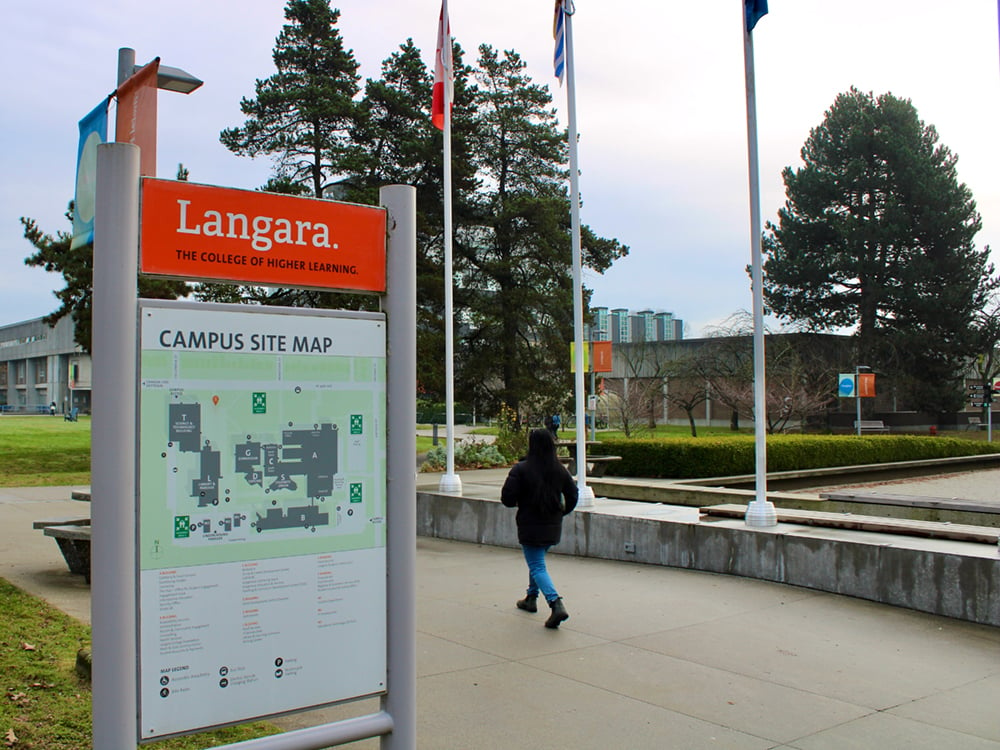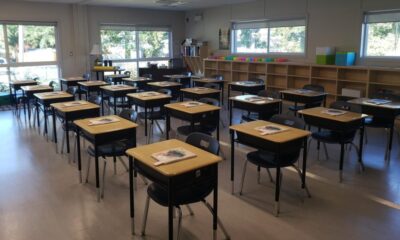Education
B.C. Faces Decline in International Student Enrolment This Fall

As British Columbia’s university and college students return to campus this fall, many institutions are grappling with a decline in international enrolment. This follows the federal government’s decision to cap international student permits, which has significantly impacted public post-secondary institutions in the province.
Among the 25 public post-secondary institutions in B.C., 19 responded to inquiries from The Tyee regarding their international student enrolment for the fall 2025 semester. Only two institutions—the University of British Columbia and the University of Victoria—reported meeting their anticipated enrolment numbers. The British Columbia Institute of Technology indicated it was on track to meet its international student quota, despite not having enrolled sufficient numbers yet.
In contrast, 11 institutions, including Kwantlen Polytechnic University and Emily Carr University of Art + Design, stated they would not welcome as many international students as they could have this fall. Meanwhile, five institutions, such as Simon Fraser University and University of Northern British Columbia, noted it was too early to provide enrolment forecasts due to pending application deadlines.
The reliance on international students varies widely among institutions. For example, the Justice Institute of British Columbia focuses primarily on local public safety training, while others depend heavily on international tuition to subsidize domestic rates. An emailed statement from Emily Carr University highlighted that “this year’s application volume is lower than in previous cycles,” attributing this decline to recent changes in federal immigration policies.
Changes in Immigration Policies Affect Enrolment
Prior to 2024, the process for international students applying to study in Canada was relatively straightforward. Students would apply to a Canadian institution, then use their acceptance letter to apply for a student visa or a letter of introduction from Immigration, Refugees and Citizenship Canada. This letter was crucial for entry into Canada, accompanied by proof of financial stability, including access to at least $10,000 in addition to tuition fees.
The recent policy shift introduced a new requirement for international students: obtaining a provincial attestation letter, commonly referred to as a PAL. Each province receives a limited number of these letters, which schools distribute to eligible students. This change has lengthened the application process, often leaving students unable to secure their study permits in time for the fall semester, thus forcing some to defer or abandon their studies.
A spokesperson for Okanagan College confirmed a “significant” decline in new international student applications compared to previous years, indicating that the institution is unlikely to utilize all its allocated PALs for the current year. This decline is not isolated to British Columbia; Universities Canada recently reported that international student enrolment has fallen below government-set study permit numbers nationwide.
Economic Implications of Declining Enrolment
International students contribute significantly to the economy, with an estimated impact of $7.5 billion to British Columbia’s economy in 2022, as reported by the Greater Vancouver Board of Trade. They support nearly 80,000 jobs and contribute $5.7 billion to the province’s gross domestic product. Unlike domestic students, international students pay full tuition, which averaged $32,909 per semester in the 2022-23 academic year—426 percent higher than domestic rates.
This financial model has become critical for many institutions, especially as provincial government funding has decreased from 68 percent of total revenue in 2000 to just 40 percent today. The presence of international students not only bolsters tuition revenue but also enhances program options at institutions, particularly those in sparsely populated areas. Laurie Waye, president of Coast Mountain College, notes that international students can boost class sizes and contribute to local economies as both students and future graduates.
The decline in enrolment could also exacerbate labour shortages in British Columbia. The province anticipates needing to fill one million new job openings over the next decade, particularly in sectors like construction trades and healthcare. Waye emphasizes that international students show substantial interest in programs such as early childhood education, which are critical for addressing local workforce needs.
While the federal government has made changes to the international student program citing economic alignment, experts argue that these shifts could harm Canada’s reputation as a preferred study destination. Phil Ollenberg, an associate faculty member at Royal Roads University, notes that rapid, poorly communicated changes have destabilized the program, contributing to declining enrolment.
Minister of Post-Secondary Education and Future Skills Jessie Sunner acknowledged the importance of international students to B.C.’s post-secondary system in a statement, attributing lower enrolment to “unilateral and sudden federal changes” that have disrupted recruitment efforts.
The federal government, in response to inquiries about consultation with provinces regarding these changes, indicated that it had engaged with stakeholders in spring and summer 2024 to develop a sustainable path for international students. However, Waye advocates for more consistent collaboration between federal and provincial governments to align education policies with local economic needs.
As institutions like Langara College face budget cuts and layoffs due to declining international enrolment, the future of B.C.’s educational landscape hangs in the balance. Without addressing the underlying issues affecting international student recruitment, the province risks further economic challenges and a diminishing role in the global education market.
-

 Politics4 weeks ago
Politics4 weeks agoSecwepemc First Nation Seeks Aboriginal Title Over Kamloops Area
-

 World5 months ago
World5 months agoScientists Unearth Ancient Antarctic Ice to Unlock Climate Secrets
-

 Entertainment5 months ago
Entertainment5 months agoTrump and McCormick to Announce $70 Billion Energy Investments
-

 Science5 months ago
Science5 months agoFour Astronauts Return to Earth After International Space Station Mission
-

 Lifestyle5 months ago
Lifestyle5 months agoTransLink Launches Food Truck Program to Boost Revenue in Vancouver
-

 Technology3 months ago
Technology3 months agoApple Notes Enhances Functionality with Markdown Support in macOS 26
-

 Lifestyle3 months ago
Lifestyle3 months agoManitoba’s Burger Champion Shines Again Amid Dining Innovations
-

 Top Stories2 months ago
Top Stories2 months agoUrgent Update: Fatal Crash on Highway 99 Claims Life of Pitt Meadows Man
-

 Politics4 months ago
Politics4 months agoUkrainian Tennis Star Elina Svitolina Faces Death Threats Online
-

 Sports5 months ago
Sports5 months agoSearch Underway for Missing Hunter Amid Hokkaido Bear Emergency
-

 Politics5 months ago
Politics5 months agoCarney Engages First Nations Leaders at Development Law Summit
-

 Technology5 months ago
Technology5 months agoFrosthaven Launches Early Access on July 31, 2025



















